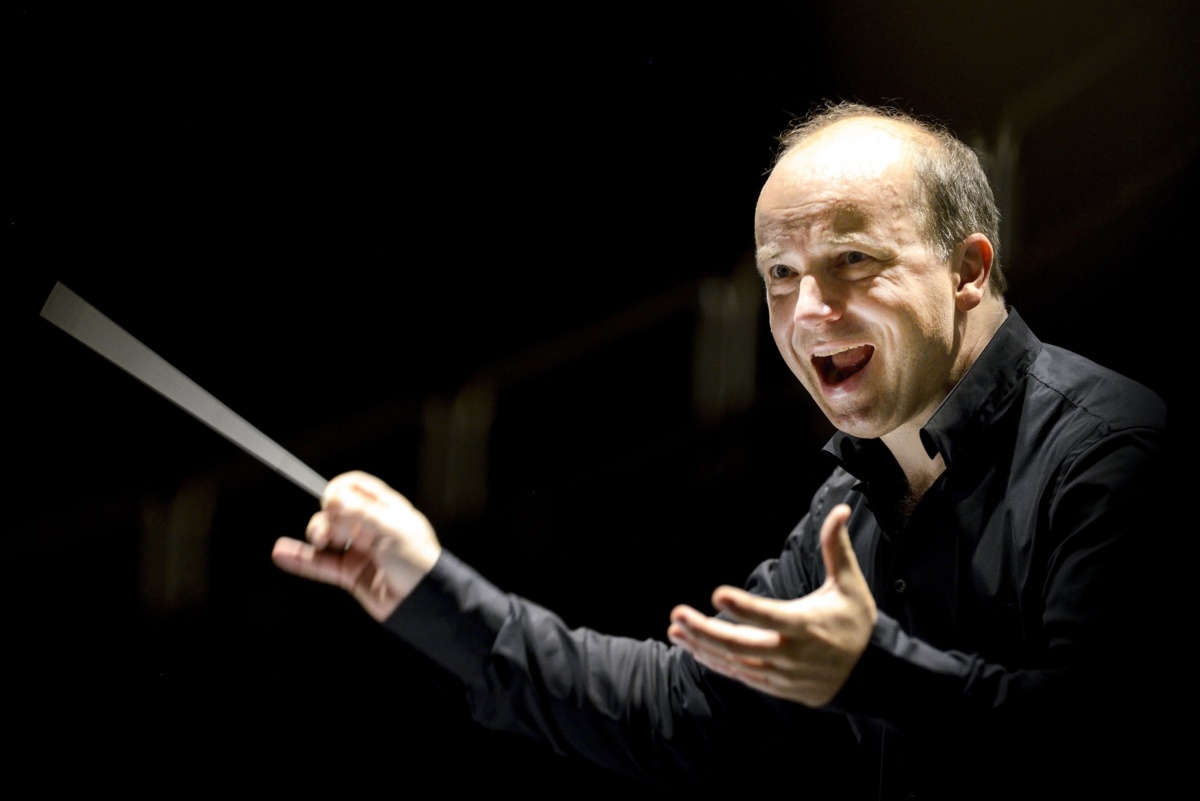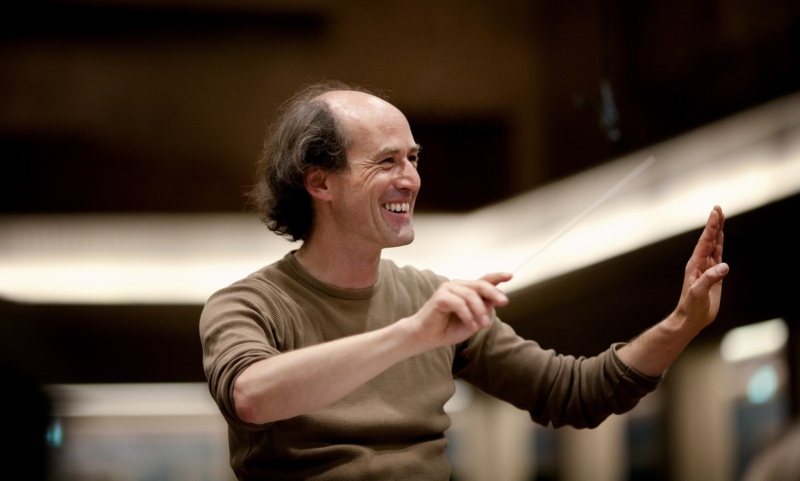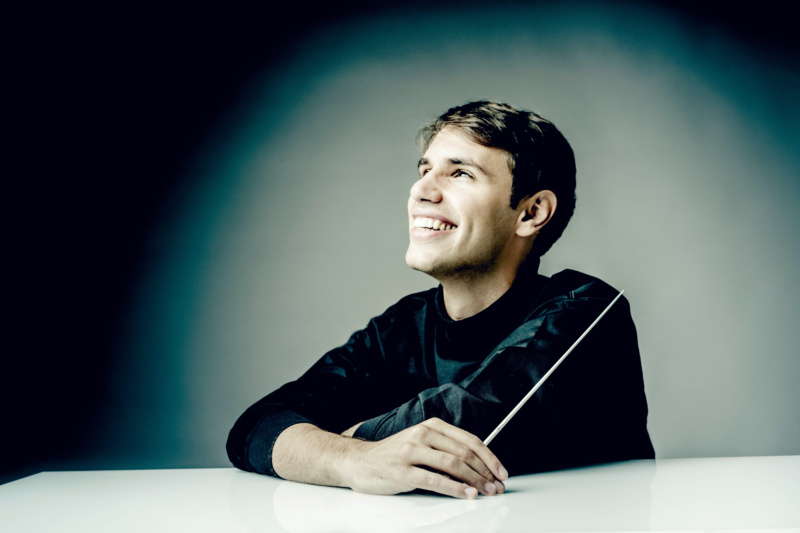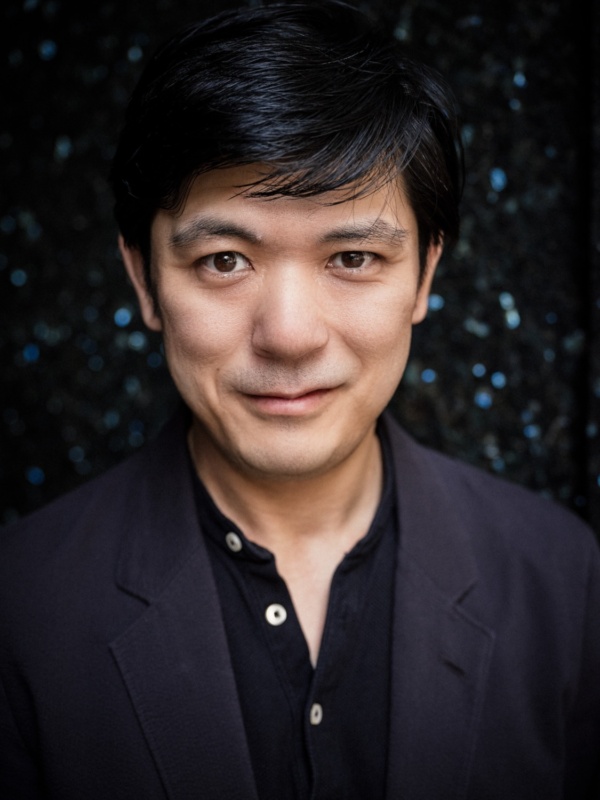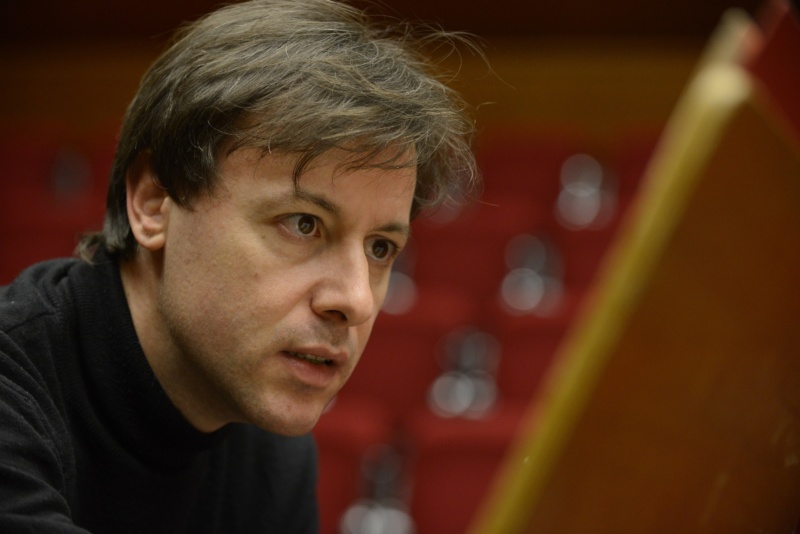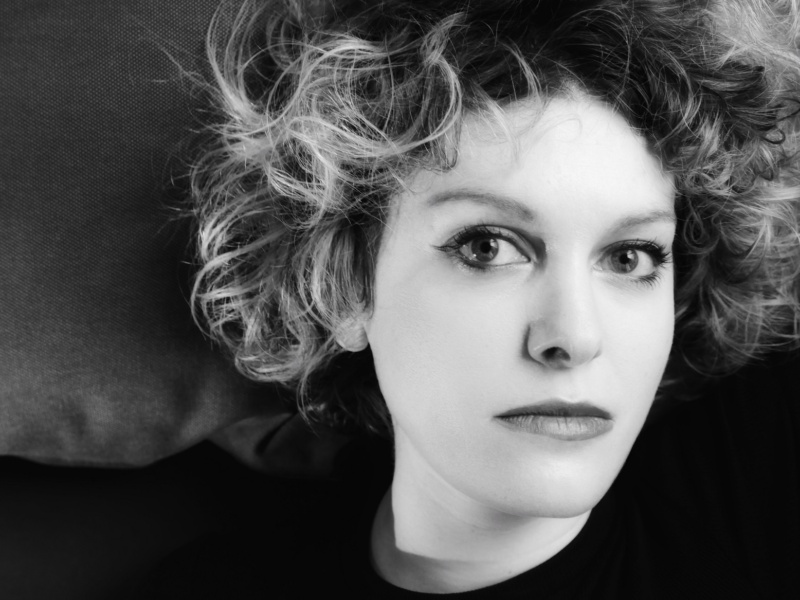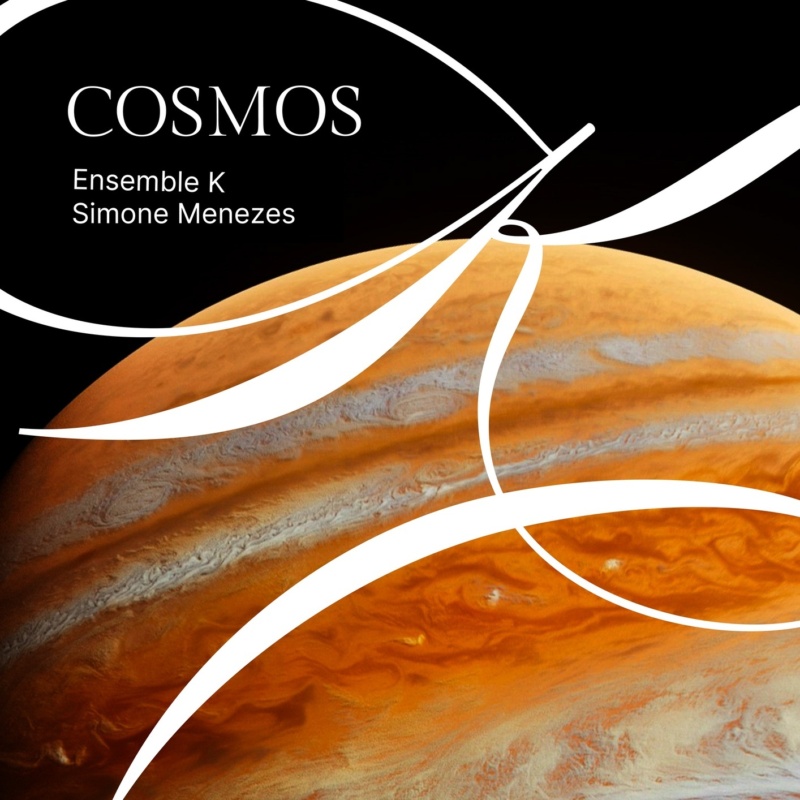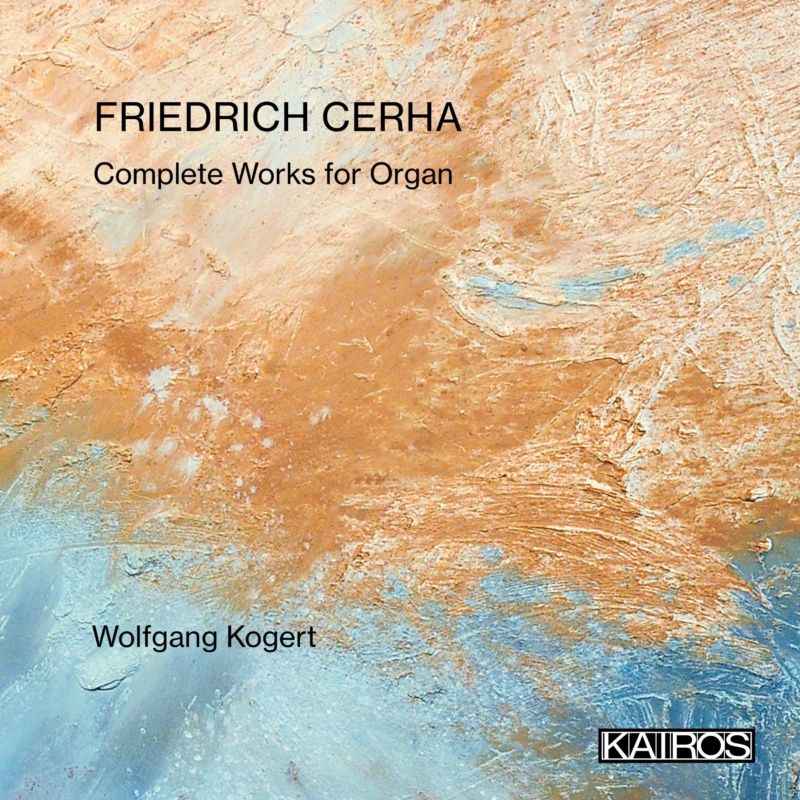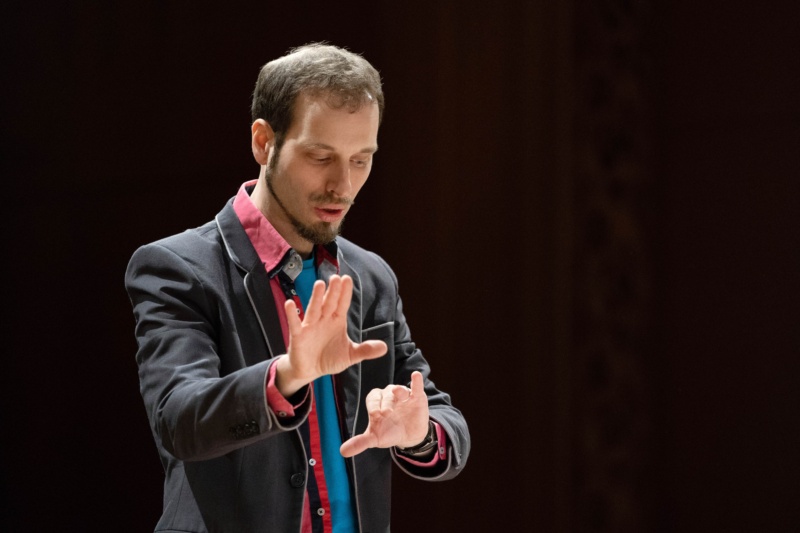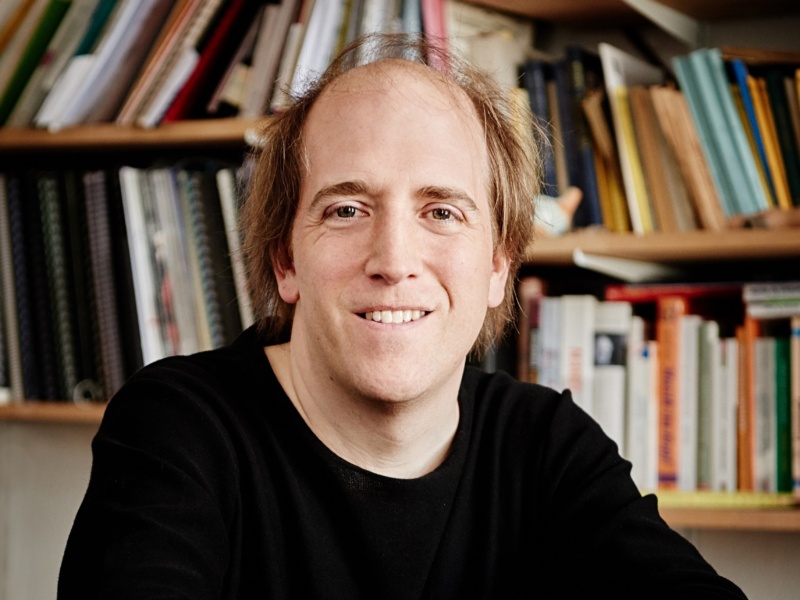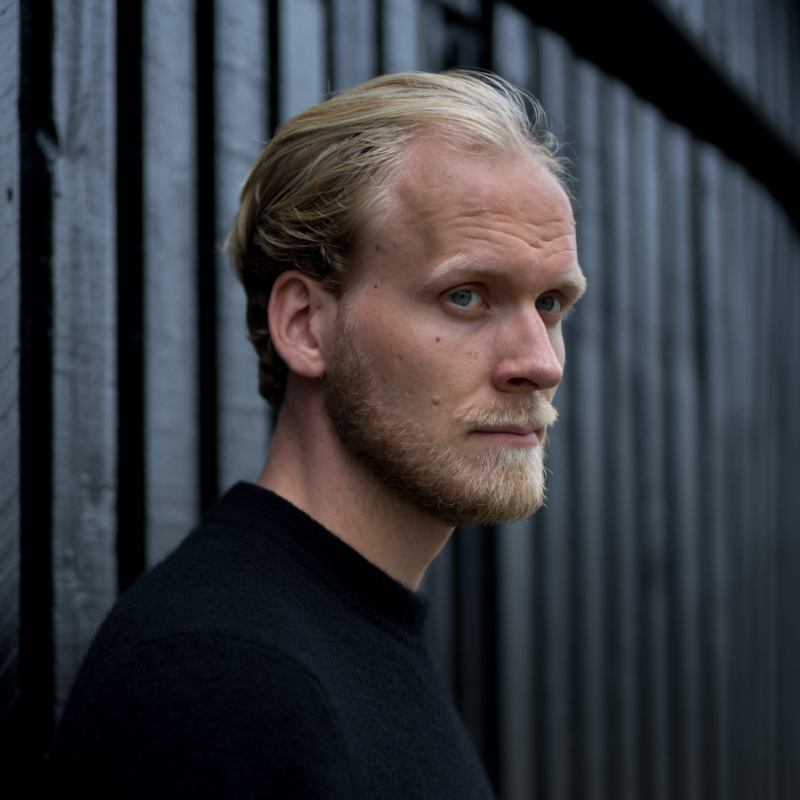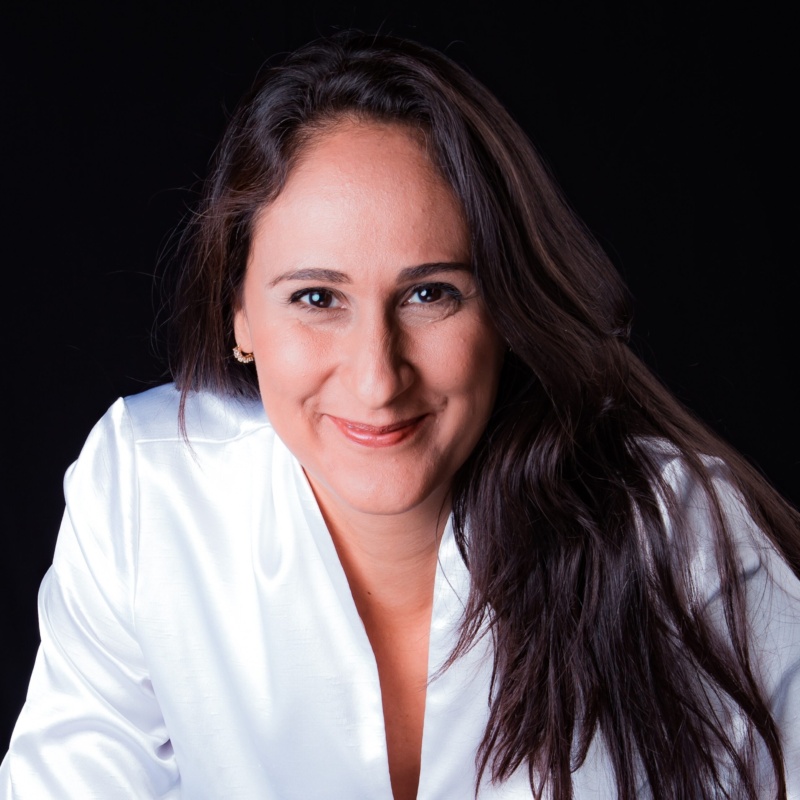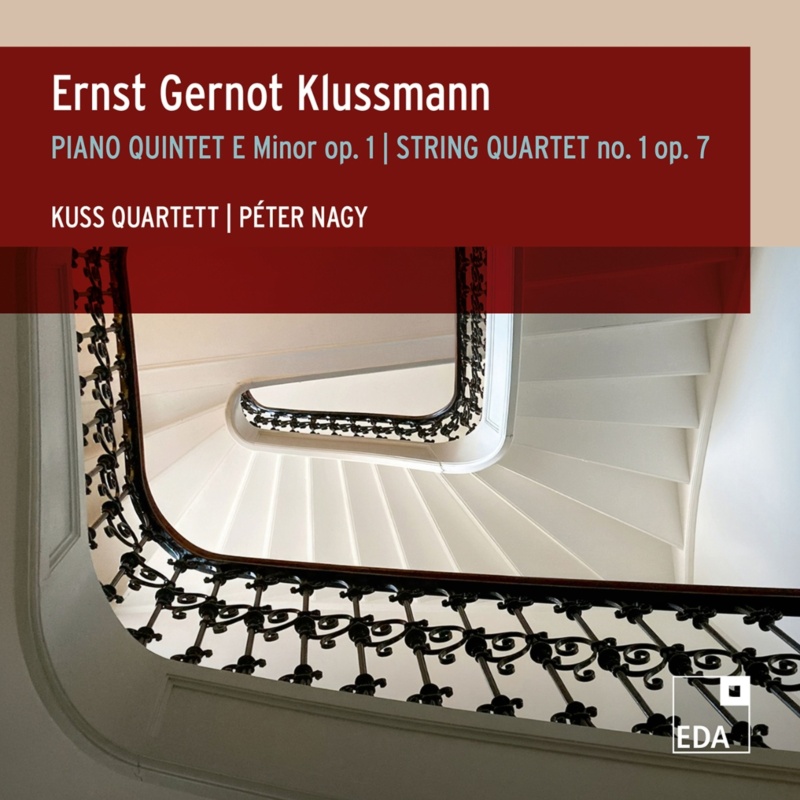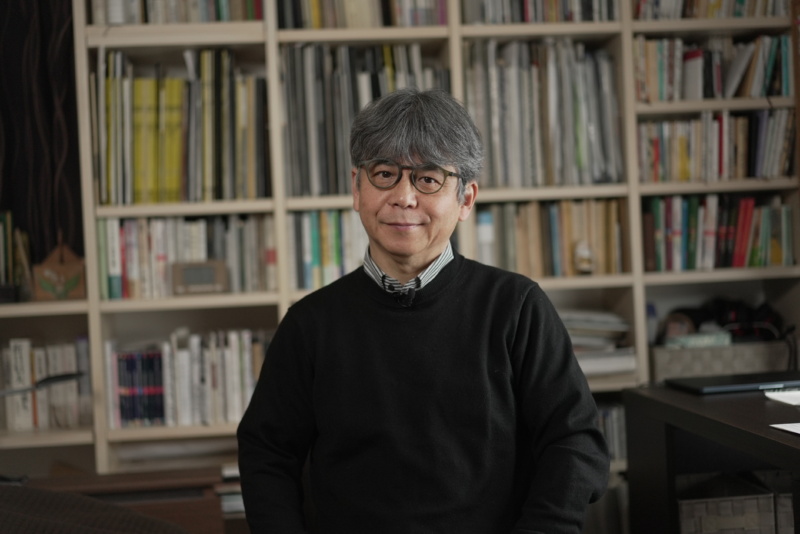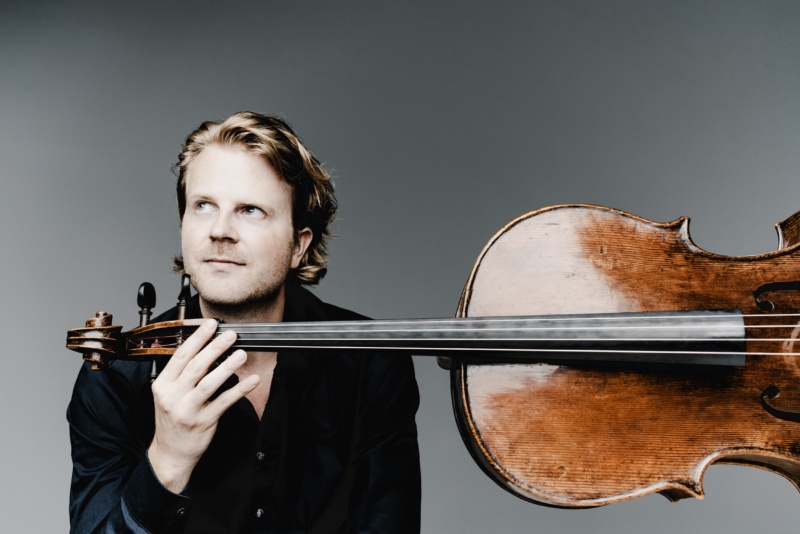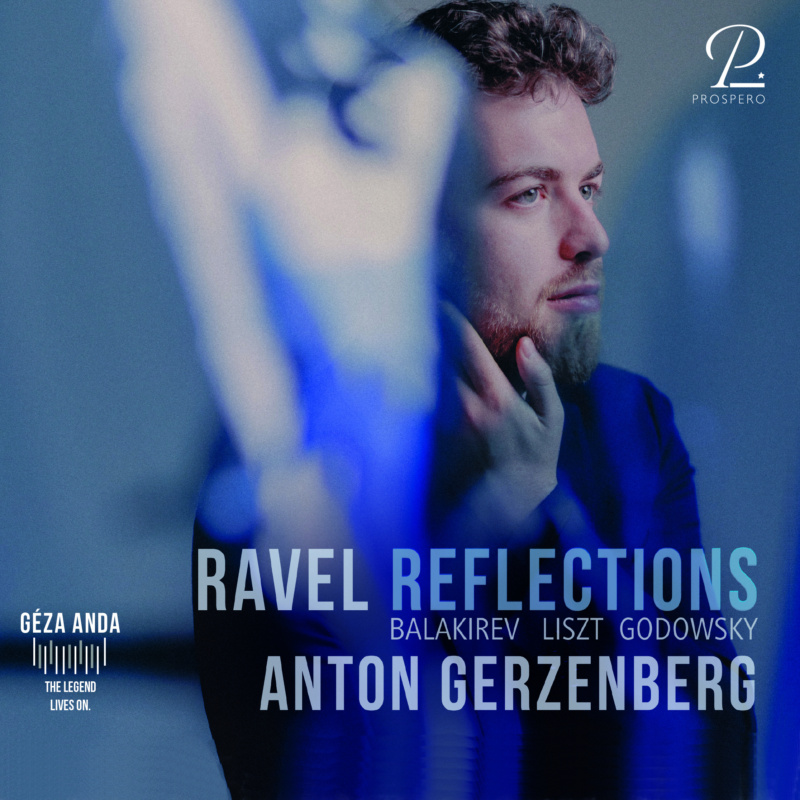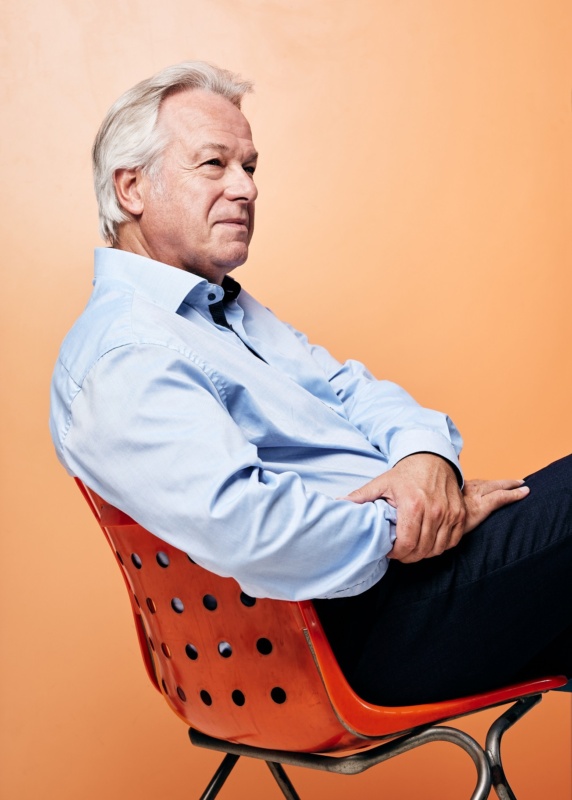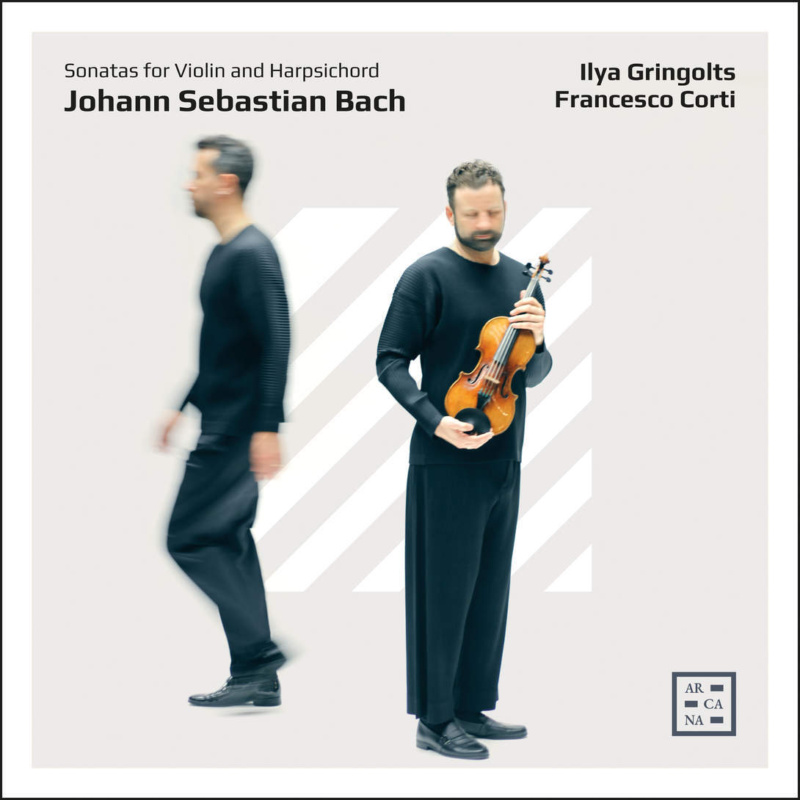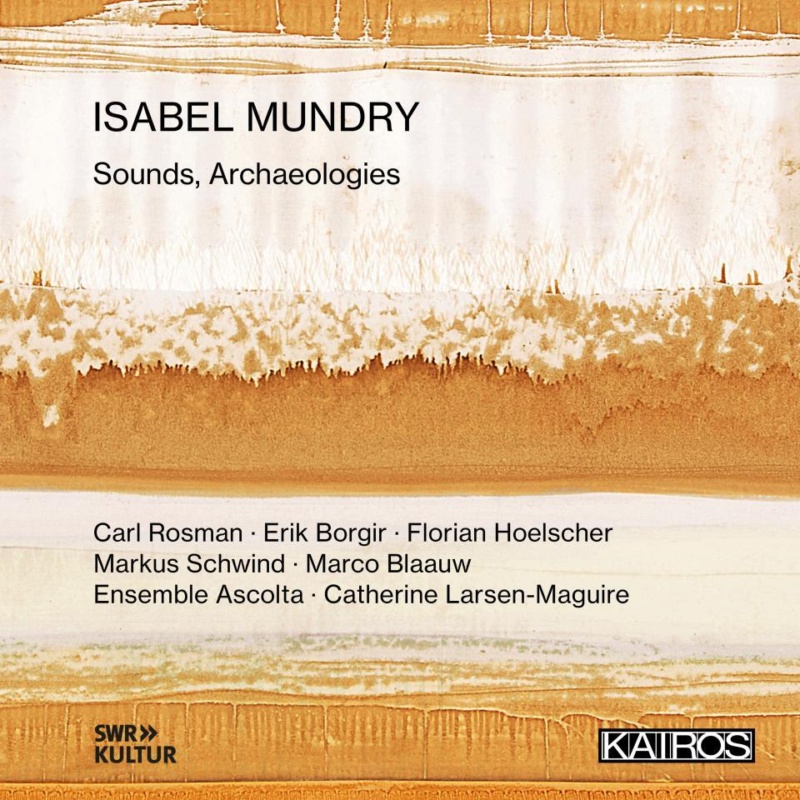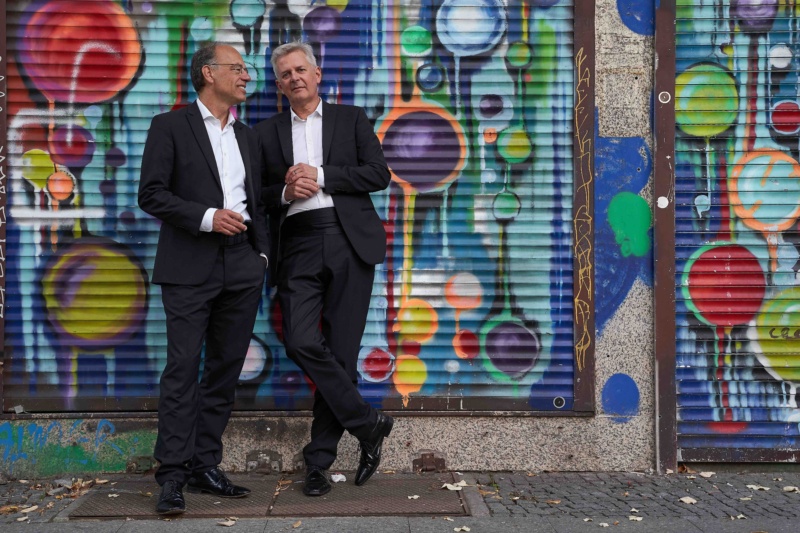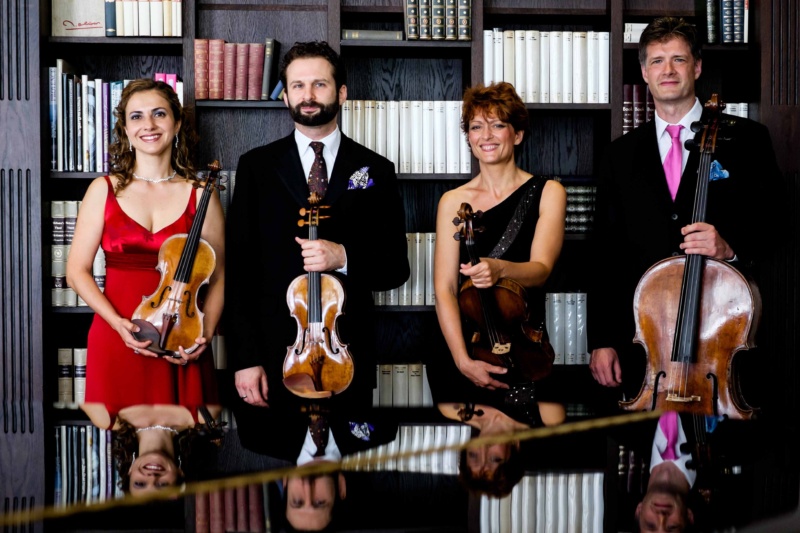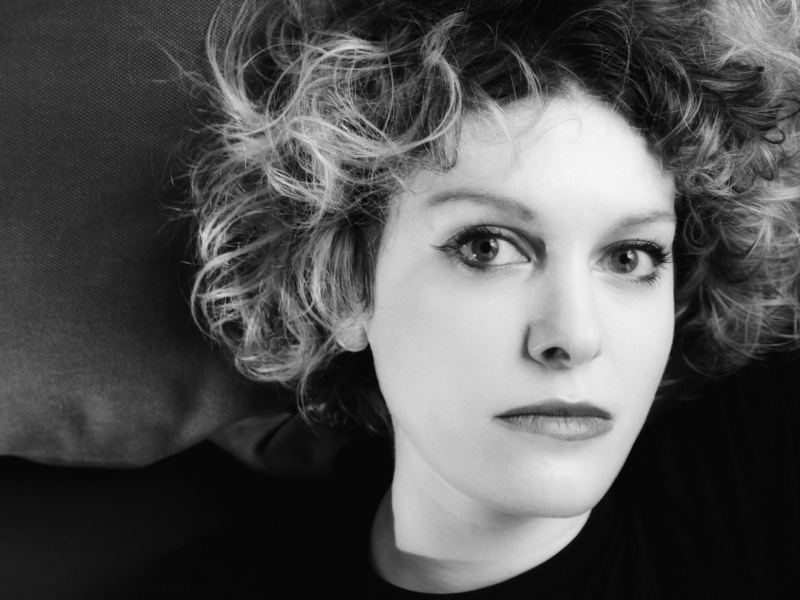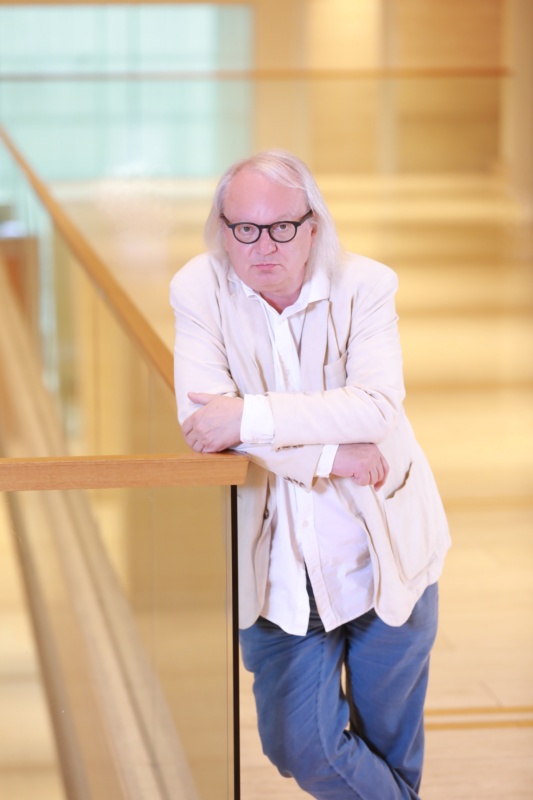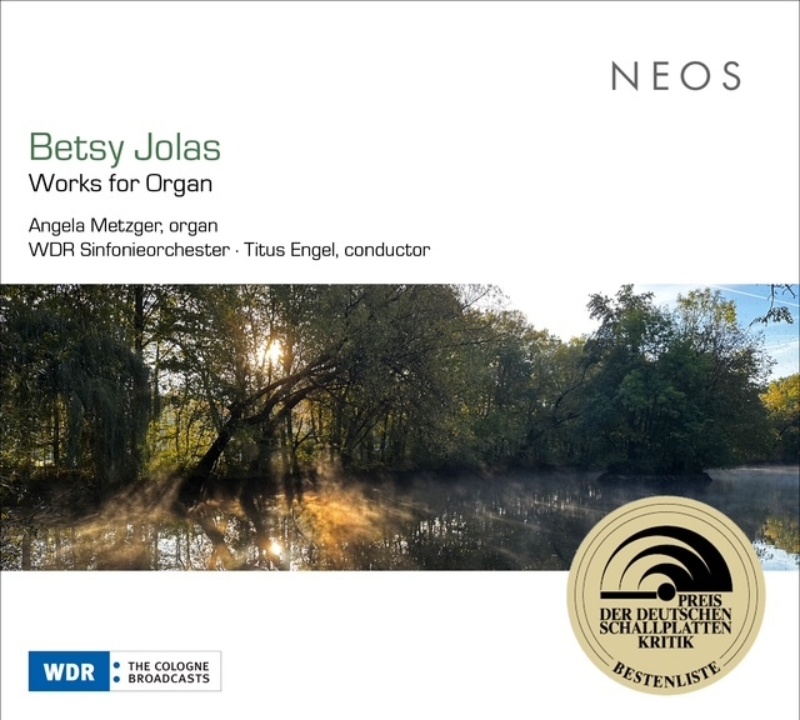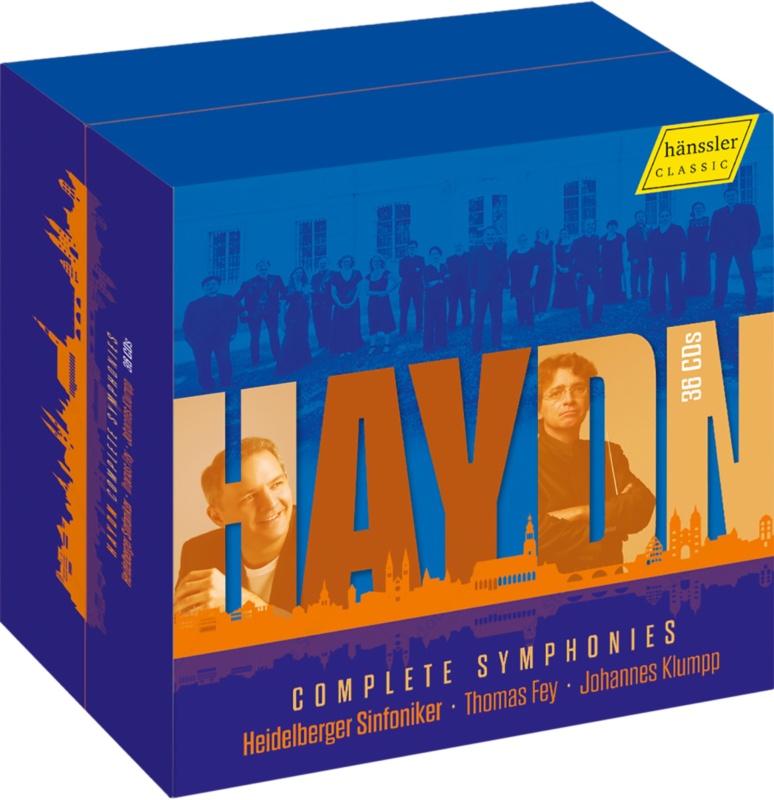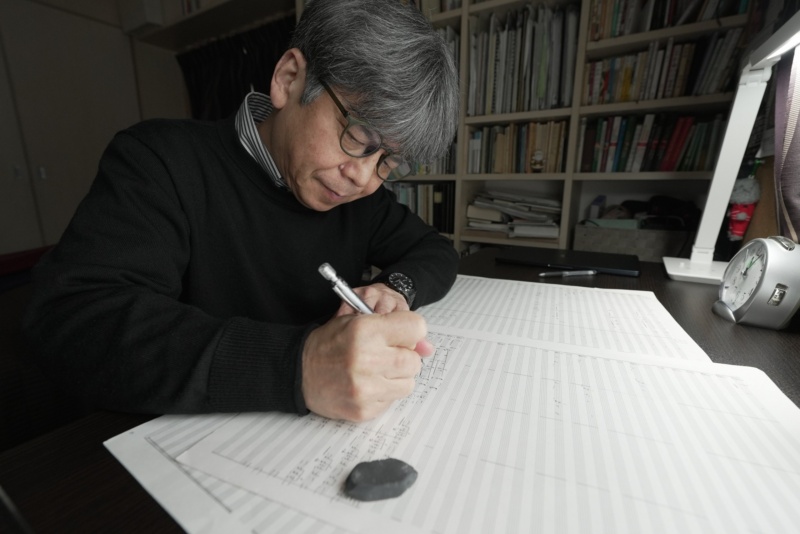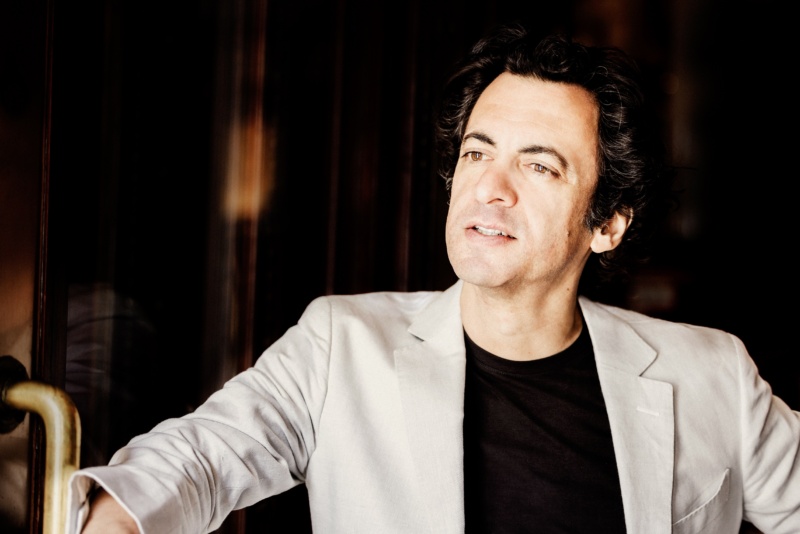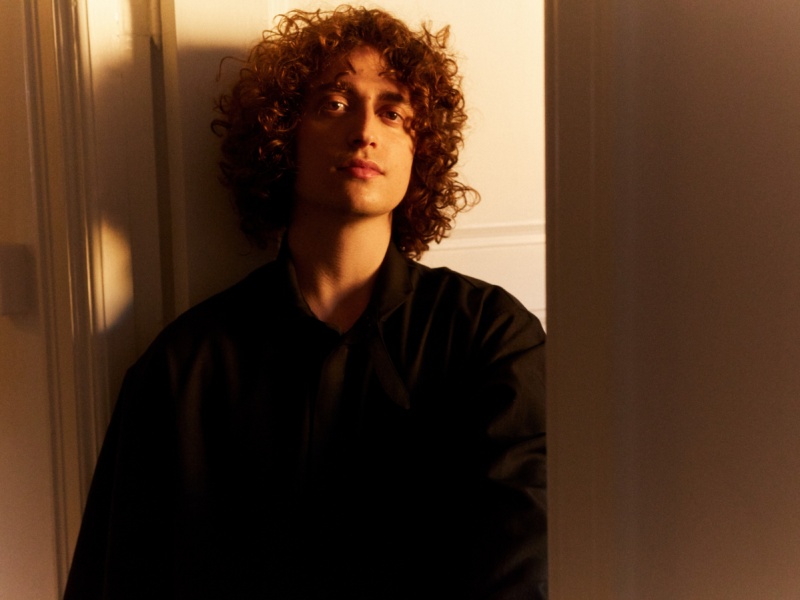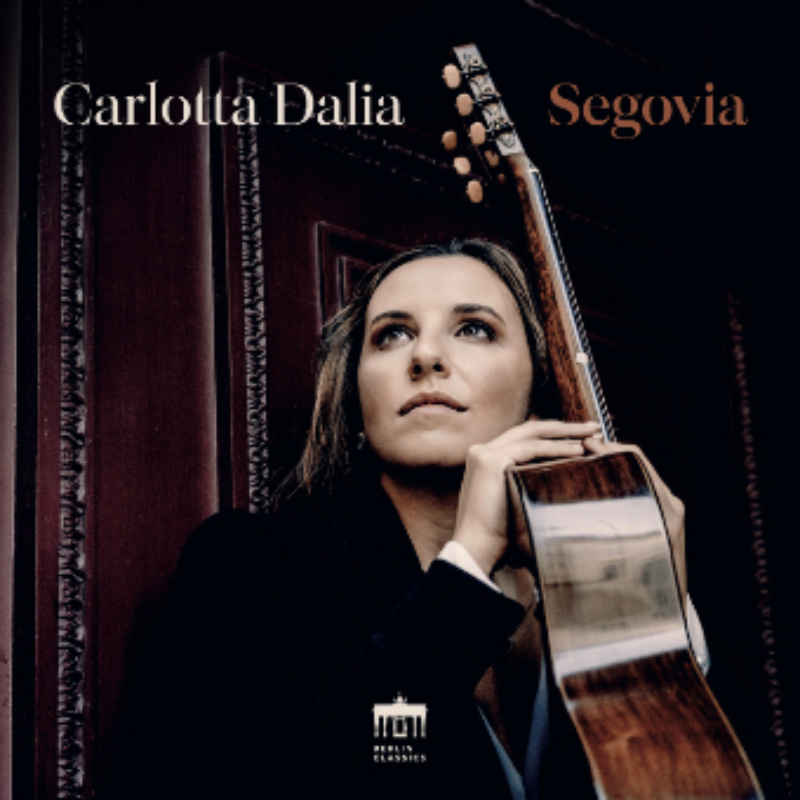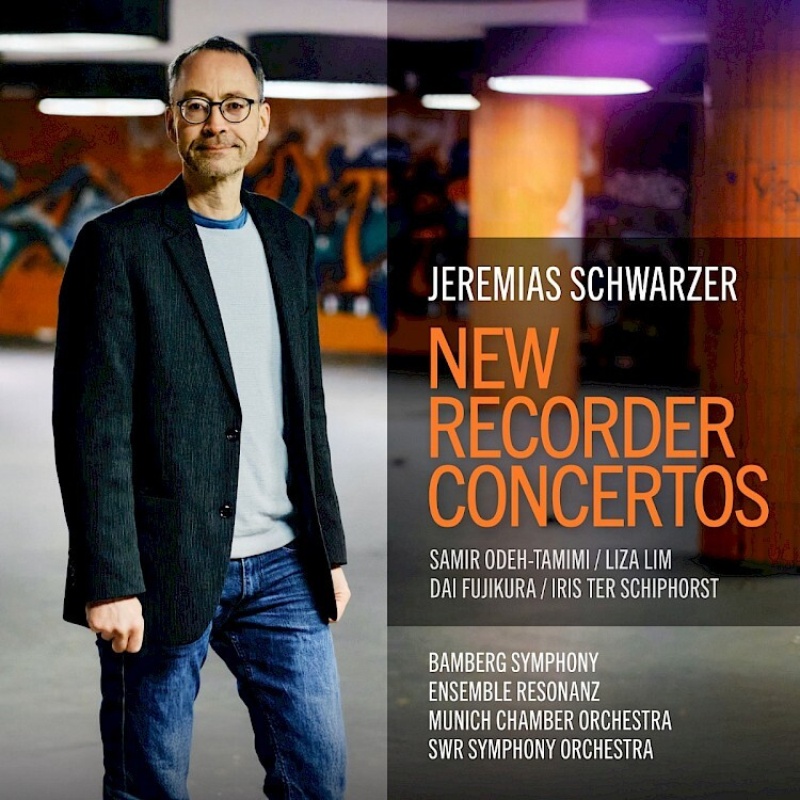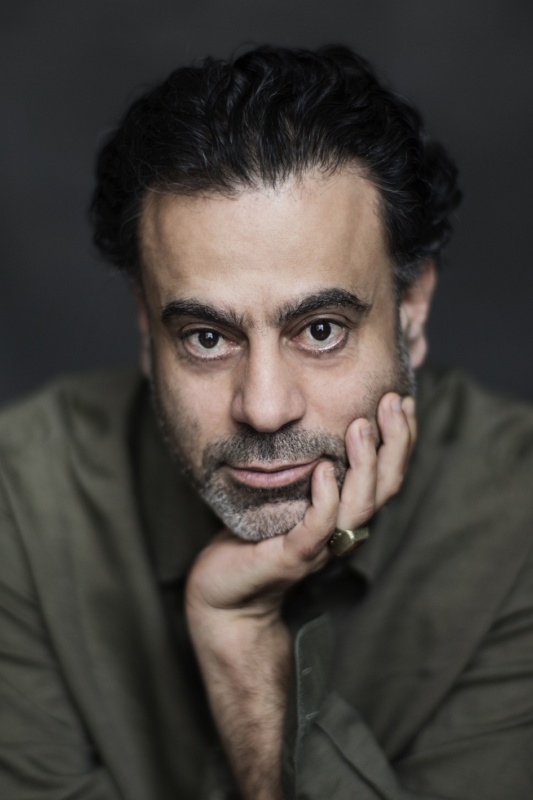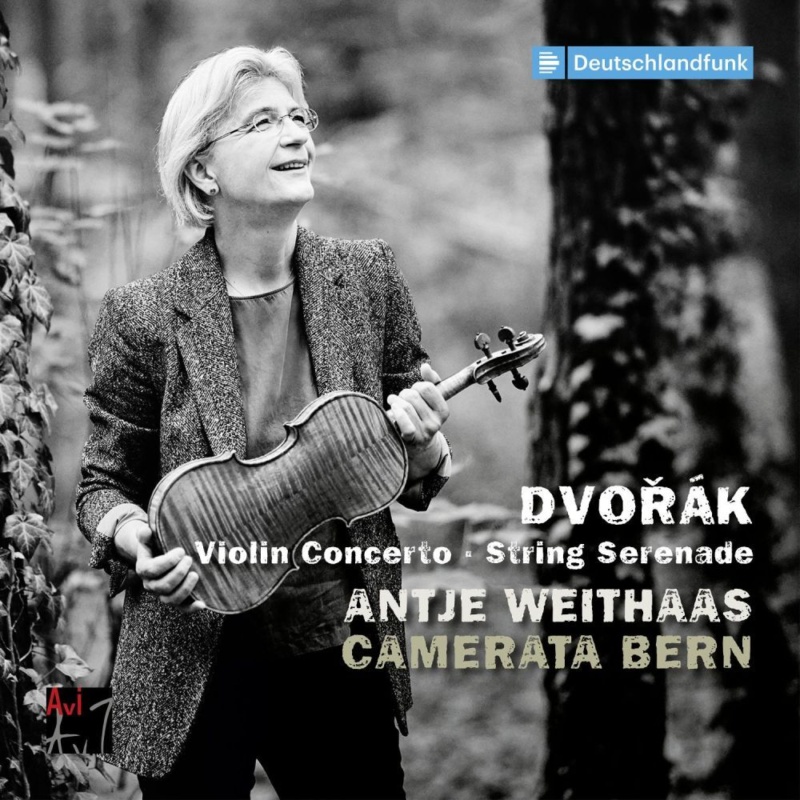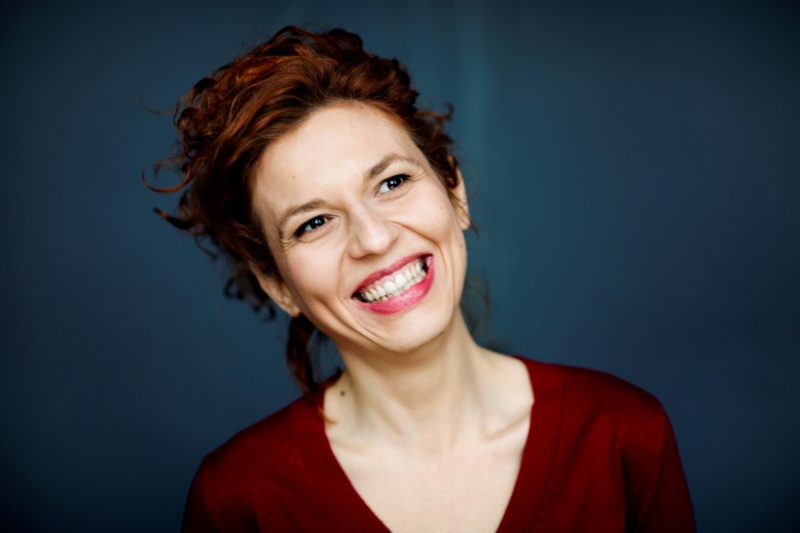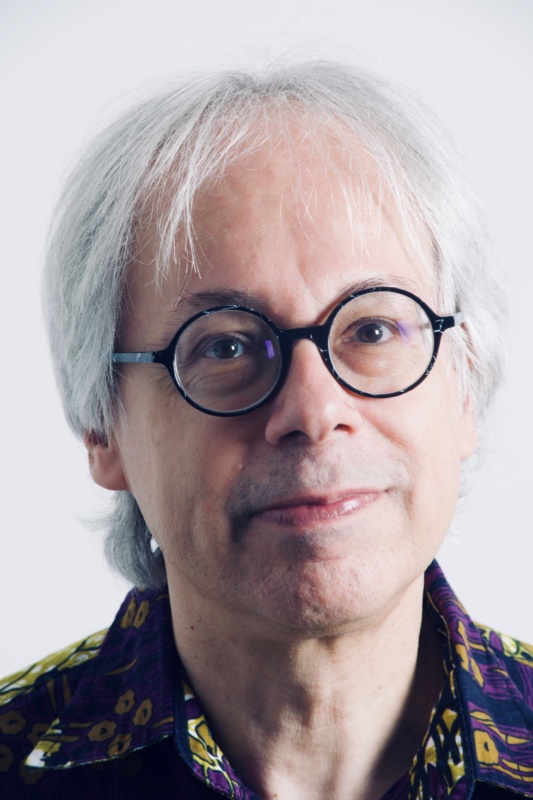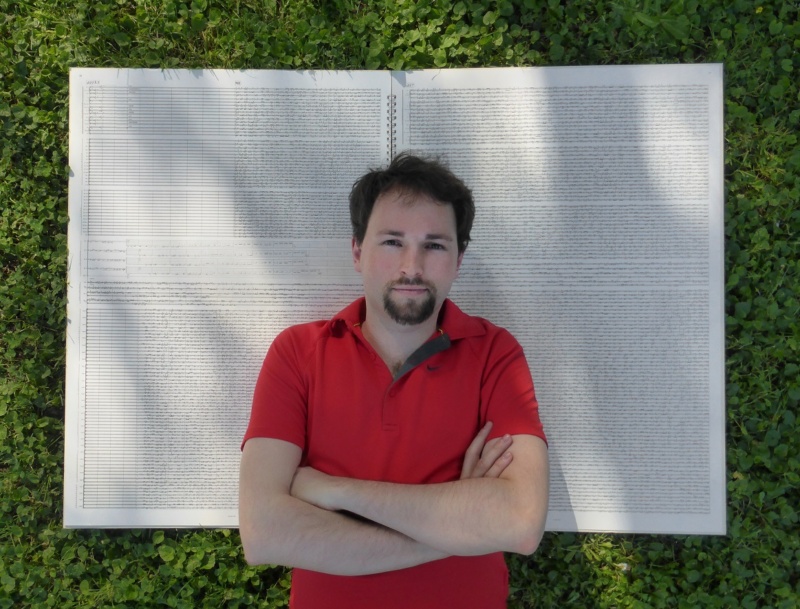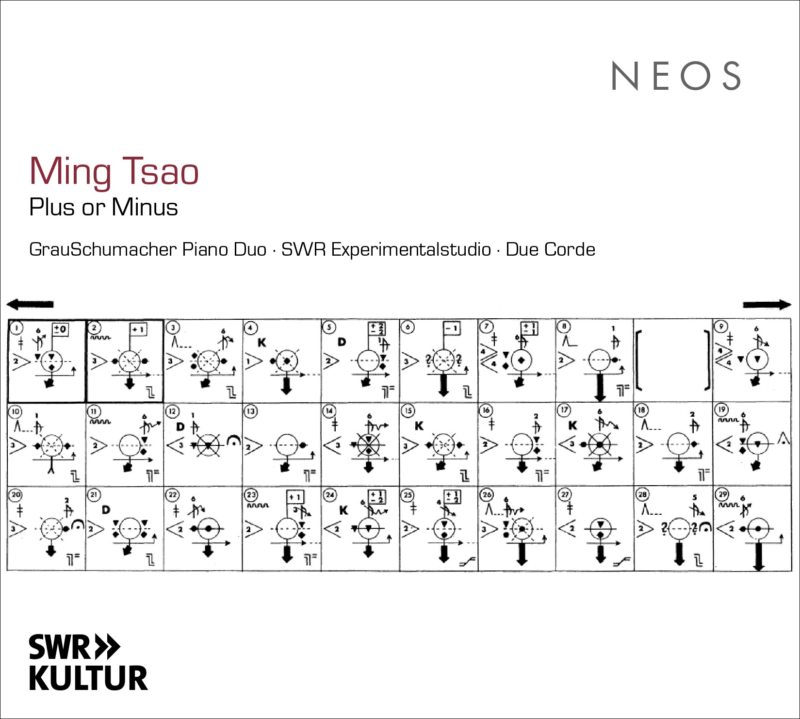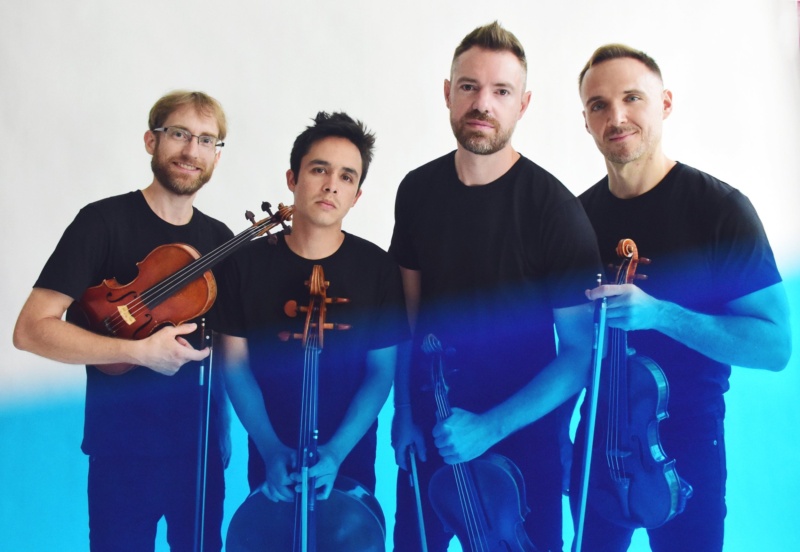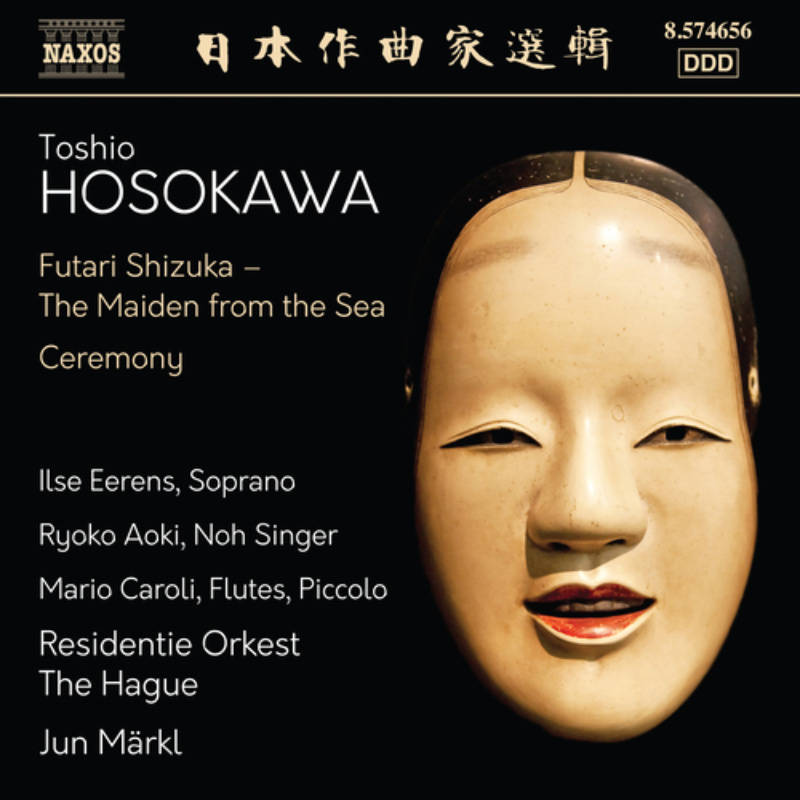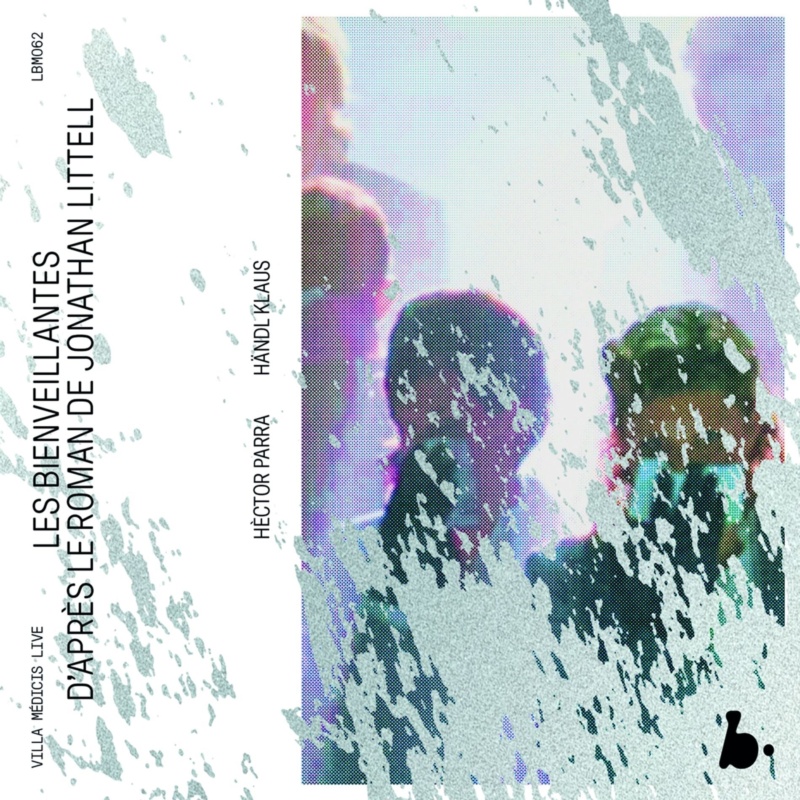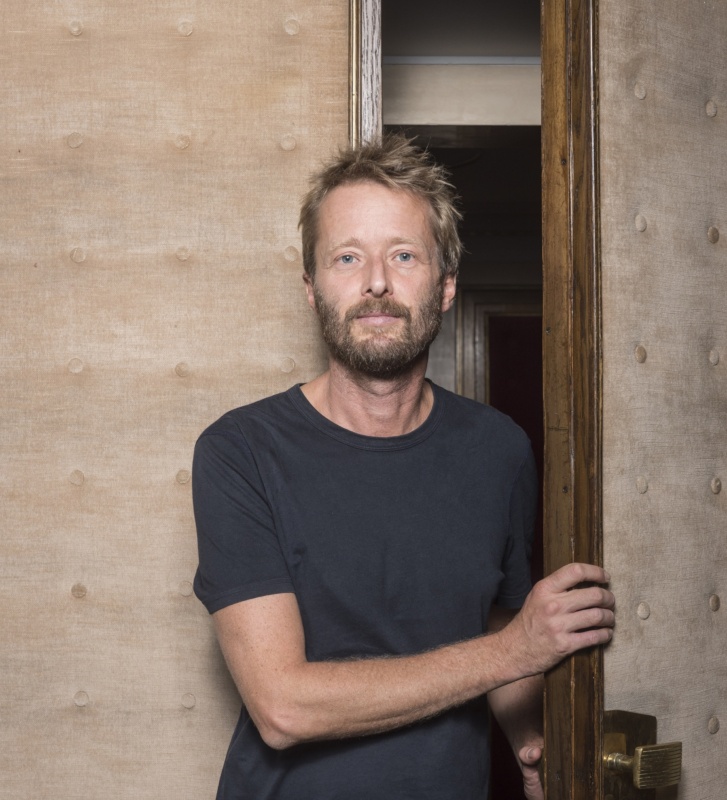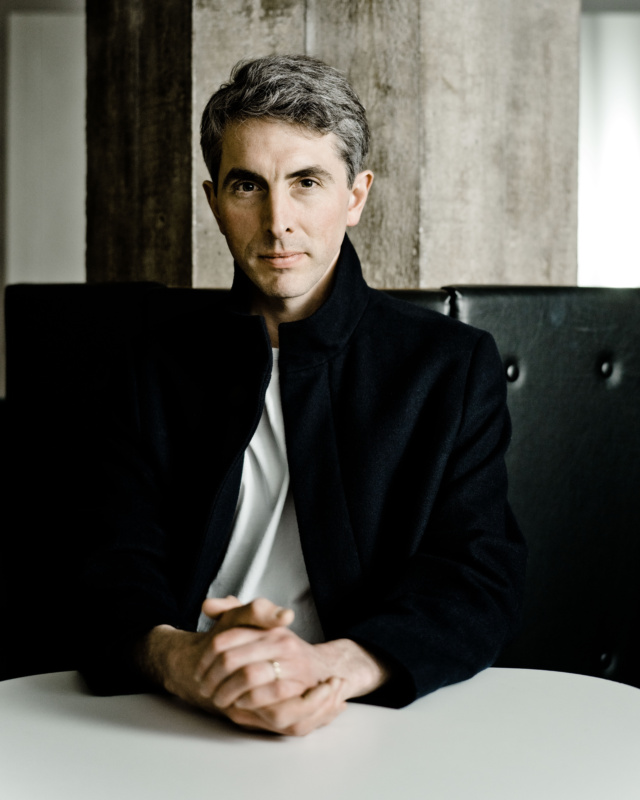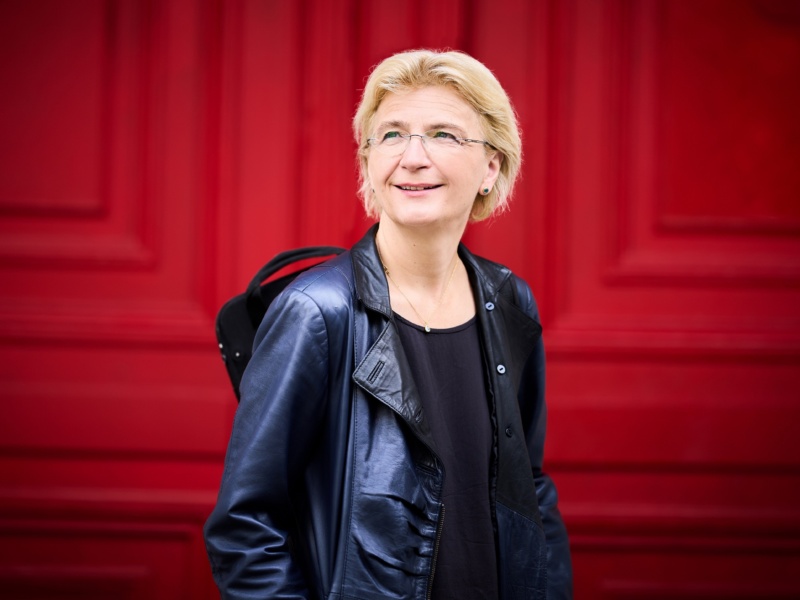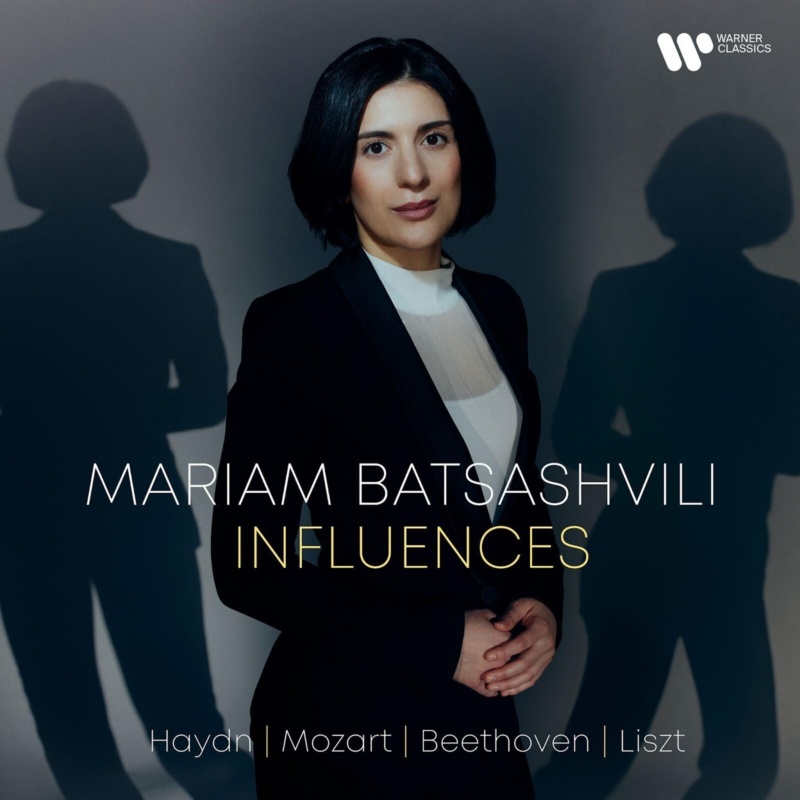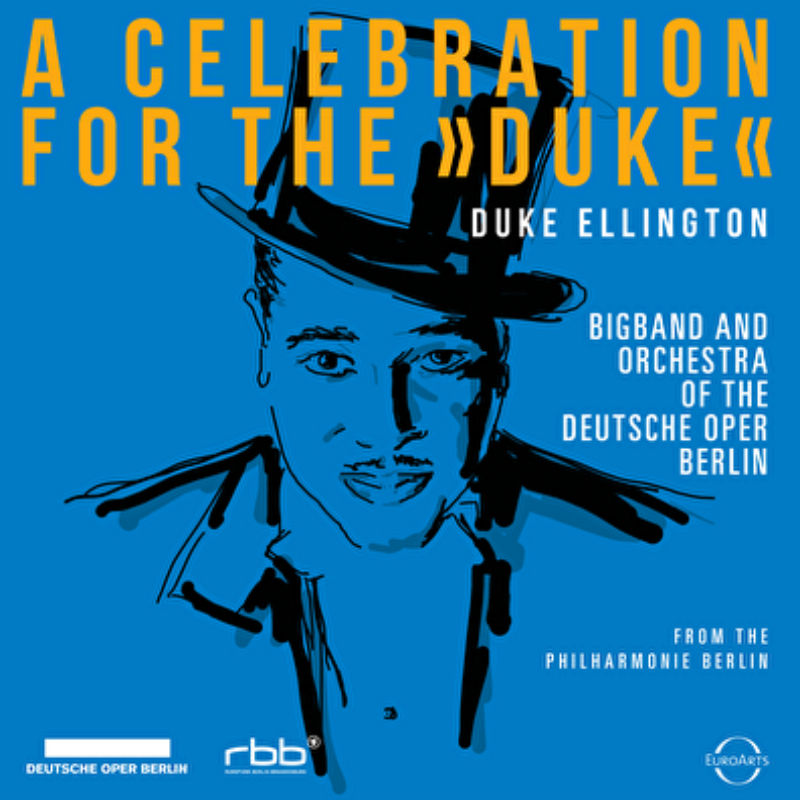A more fitting work could hardly have been found for the central performance of the extensive themed week "Resource Remembrance" to mark the 80th anniversary of the liberation of the Buchenwald concentration camp. In Weinberg's opera, completed in 1968, with which the composer fought against the repression of the Holocaust memory both in Germany and in the Soviet Union, remembrance is present in a double perspective. At the centre is Martha, a young Polish woman and survivor of the Auschwitz-Birkenau women's concentration camp. In 1960, she meets her former tormentor, the concentration camp guard Anna-Lisa Franz, on an ocean cruiser. The opera confronts the embellished and incomplete confessions of "Lieschen" with the inconceivable violence suffered by the prisoners.
The opera, which only premiered in Bregenz in 2010, is now being performed at a location that is virtually within sight of the former Buchenwald concentration camp. Roland Kluttig also has personal memories of the memorial site. "As a teenager growing up in the GDR, I was obliged to visit Buchenwald, which I think was perfectly fine. But the stories we were told back then were exclusively about the anti-fascist, mostly communist resistance, which was of course very important here, but not the only thing."
Mieczysław Weinberg, who fled to the Soviet Union after the German invasion of Poland, lost his entire family in the Holocaust and was later imprisoned as part of Stalin's anti-Semitic agenda, became aware of the novel The Passenger by Auschwitz survivor Zofia Posmyz at the suggestion of his friend Dmitri Shostakovich. Based on the libretto written by Alexander Medvedev, he created a work that allows the most diverse worlds of sound to interact with each other.
"Roland Kluttig achieves a musical quality with the Staatskapelle Weimar that takes your breath away," enthused concerti magazine about the premiere. "From the laconic parlance to the undisguised pathos: helping the richness and originality of a piece of music to find its rightful place has something of late justice and puts Weinberg in the right light."
It is already Roland Kluttig's second production of The Passenger - he conducted the work at Graz Opera in 2020; a recording was released on CD in 2021. At that time, he initially approached the material via the book by Zofia Posmyz, who died in 2022. "She was still connected to the Graz production - the director and dramaturge visited her in Warsaw in 2019. She was no longer able to come to the premiere, and unfortunately I never got to meet her."
At a time when the last Holocaust survivors are gradually passing away and younger generations are looking for new approaches to remembrance, Roland Kluttig sees the potential of the opera in a special way of dealing with history - contrary to false and trivialising narratives. "Unfortunately, it has to be said that there is currently an authoritarian movement throughout the western world. There are people, even academics, who claim that it wasn't that bad and who push such claims with media energy."
"The Passenger is an opera that captivates everyone, even those who have nothing at all to do with music. Of course, the story is fiction. But this fiction is fuelled by experience and is very accessible. It's a kind of docu-opera," says the conductor. In the spirit of this accessibility, it was also decided during the production process to stage the opera in German, in a new text version by Sergio Morabito and Susanne Felicitas Wolf.
Roland Kluttig is delighted with the collaboration with the directing team of Sergio Morabito and Jossi Wieler. "They never make hasty judgements or interpretations based on the zeitgeist, but always stay very close to the text." Roland Kluttig has a long-standing relationship with Jossi Wieler in particular. "In 2003, I worked with him at the Stuttgart Opera as Lothar Zagrosek's assistant on Moses und Aron. And during his time as director of the opera house from 2011 to 2018, I conducted in Stuttgart every year - but never with him as stage director! So Andrea Moses brought us together in her last year as opera director here in Weimar."
The precise text work by Jossi Wieler and Sergio Morabito even made him recognise some aspects of the score more consciously. "During the second reading, I realised more clearly how cinematically precise Weinberg's composition was, right down to the very intervals - I hadn't even been aware of that to this extent during my first interpretation." The term film music, he says, is often used pejoratively, but this is not appropriate here. "Weinberg was also a great film music composer. But Russian film music is very different from Hollywood music. It has more of a commentary function. And that's typical of Weinberg - he composes precisely along the lines of the text and doesn't put himself and his music in the foreground. This may sometimes mean that he misses out on big upswings and a huge musical surge. Instead, you get a kind of commented theatre play."
Roland Kluttig assumes that Shostakovich recognised this quality in his friend Weinberg and drew his attention to the novel by Zofia Posmyz instead of tackling the material himself. "Shostakovich has shaped this whole generation. But for me, Weinberg can still rank alongside him. I also see him as a bridge between Shostakovich and Alfred Schnittke." The use of quotation and collage techniques is particularly noteworthy - and also central to the dramaturgy of The Passenger. A partita by Bach is played as an act of self-assertion: Forced to perform in front of the camp commandant, Martha's fiancé Tadeusz plays Bach's piece instead of the waltz which was demanded from him.
"Weinberg wrote Bach's partita in the sheet music, for the first and second violins, without commentary," explains Roland Kluttig. "In the course of the partita, a chord is built up in the orchestra. You could interpret this as the shattering of the violin, the violin melody. When the partita suddenly stops, you can hear the empty strings, as if a violin is being broken and the strings are hanging in the air and still tinkling. Since the first staged performance in Bregenz, it has become customary to have this partita played by a soloist and for the violin tutti to enter just before the shattering chords begin. But we asked ourselves, shouldn't it actually be played by everyone? We then experimented a little and let the concertmaster play the first eight bars. Then, very early on, the violin tutti gradually enters."
It is no coincidence that Roland Kluttig is so close to the music of Weinberg and his contemporaries from the former Soviet Union. "I grew up in the GDR, as the child of a conductor who conducted a lot of Shostakovich," he explains. "The 15th Symphony in particular is one of the works I heard most often in concert during my teenage years. In a certain way, this music expressed our attitude to life better than anything else. It touched me incredibly in my GDR youth. I felt understood in this depressed and grey state. Of course, this is not purely 'Eastern music'. Shostakovich is simply a great musician. However, it has to be said that he was often completely misunderstood in the West. The most 'Stalinist' interpretation of Shostakovich's Fifth Symphony was by Leonard Bernstein. Stalin, or rather the nomenklatura, demanded something friendly and victorious from Shostakovich. Shostakovich delivered that, but only apparently. Anyone who could read and hear between the lines realised that this was a forced victory, with a rope around the neck, so to speak. Leonard Bernstein did not recognise this. And paradoxically, the Fifth Symphony is Shostakovich's most popular symphony. That is just as absurd as the fact that Romeo and Juliet is Prokofiev's most popular piece. Why is it that the pieces in which concessions were actually or apparently made to the prescribed cultural policy are the most popular worldwide?"
After the fall of the Berlin Wall, however, Roland Kluttig consciously turned to music from the former other side of the Iron Curtain. "Lachenmann was one of my heroes. I tended to accept the idea that the Western post-war avant-garde had formulated a kind of claim to exclusiv agency, and I considered this to be a contradiction to Soviet music. But I know from Helmut Lachenmann, for example, how much he appreciated Alfred Schnittke. In the meantime, I think you have to realise that there were many avant-gardes at the same time. A Soviet one, a Scandinavian one, there are certain developments in England that have nothing to do with Boulez and Stockhausen, and also in the closest circle - Xenakis is a completely different avant-garde. What I find so exciting about our time is that you can deal with it in a much more liberated way." Roland Kluttig would like to continue championing this repertoire diversity in the future and conduct works by Schnittke, Ustvolskaya and composers who are perhaps still unknown or have fallen into oblivion. "Now we are suddenly rediscovering the Polish composer Grażyna Bacewicz, who was very popular in the GDR era - because there is a great deal of interest in music by women - and realising what finely crafted, exciting music it is."
Here, too, it may be necessary to do something like contemporary witness work. "In Russian music, many things were not explicitly printed because there was censorship. A lot of information about the works was passed on orally by the performers who were friends. David Geringas, the great cellist with whom I had the honour of performing both Shostakovich cello concertos many years ago, said: What if we are all dead and there is no record of what is written between the notes, so to speak?" We can only hope that new generations will take up the traces of these memories. Weinberg's Passenger certainly offers every reason to do so.
Die Passagierin
Deutsches Nationaltheater Weimar
further performances with Roland Kluttig on 11.4., 25.4. and 10.5.2025
Interview: Kathrin Feldmann-Uhl
Text: Nina Rohlfs
April 2025
